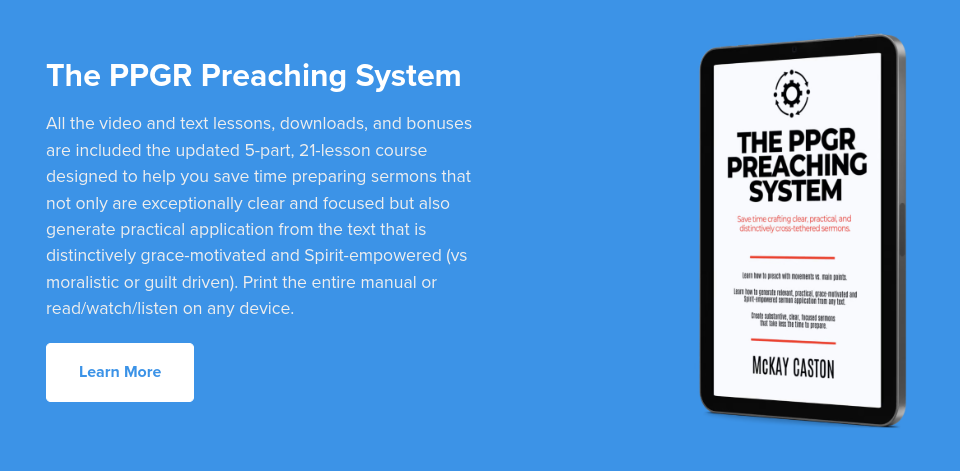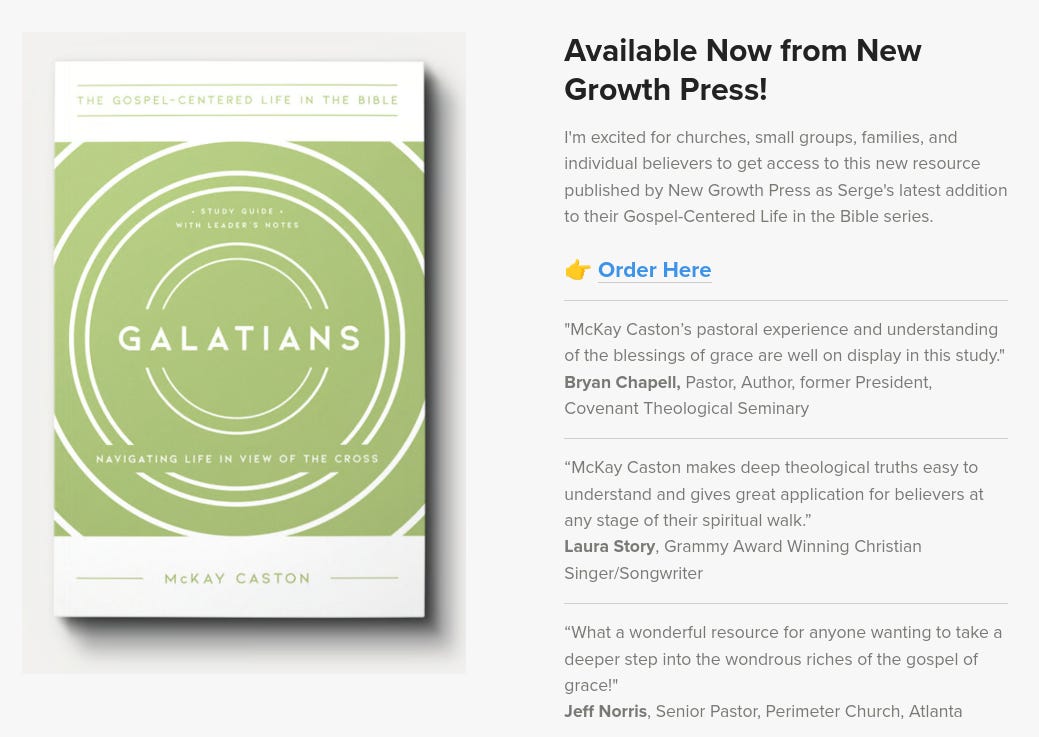Of all the topics Jesus addressed in the gospels, the most prominent is the kingdom of God, or kingdom of heaven.
Considering that emphasis, we can say that the kingdom of God serves as a thematic, theological umbrella under which everything else is to be understood.
When teaching on this umbrella theme, Jesus often used parables. One of these is found in Mark 4:30-32.
30 Again he said, “What shall we say the kingdom of God is like, or what parable shall we use to describe it? 31 It is like a mustard seed, which is the smallest of all seeds on earth. 32Yet when planted, it grows and becomes the largest of all garden plants, with such big branches that the birds can perch in its shade.”
Since there are twelve kingdom parables recorded in the gospels, the parable of the mustard seed doesn’t teach us everything there is to know about the kingdom. Nevertheless, in the three verses of Mark 4:30-32, we may glean at least three characteristics of the kingdom that will result in at least three implications for our lives.
Characteristic #1: The Mustard Seed's Unimpressive Size
A mustard seed is only 1-2 millimeters in diameter (1/10th of an inch). For comparison, a pumpkin seed is 10-15 mm (10-15 times wider).
Jesus is highlighting the fact that the influence of God’s kingdom is often going to be unnoticeable by the world’s standards. If we’re not looking, we could easily miss it.
Granted, there are exceptions. Just like the outpouring of the Holy Spirit at Pentecost in Acts 2 was a unique, non-normative, redemptive-historical event, larger and more recognizable expressions of the kingdom, such as the late Tim Keller’s ministry in New York City, is unique and not to be considered the standard or normative. Rather, it is the exception to prove the rule that the normative way God's kingdom grows is not big and fast, but small and slow.
Characteristic #2: The Mustard Seed's Unexpected Potential
Remember the unimpressive size of the mustard seed. It begins at 1-2 mm in diameter, but at full maturity, a mustard seed grows into a mustard tree that’s ten to twelve feet tall.
That’s a growth potential of 2,000,000%. Yes, two million percent!
But don’t think primarily in terms of large organizations and buildings. Immediately preceding the Parable of the Mustard Seed is the Parable of the Sower, which is about the message (seed) of the gospel taking root in the soil of the human heart. In this context, kingdom growth is when a sinner comes alive to the wonder, beauty, and life-transforming power of God’s grace in Jesus.
But something is required to trigger the germination of the seed. Jesus tells us plainly, saying, “When it is planted it grows.” In other words, it must be buried.
If we trace the Bible’s teaching on seeds, we need to go all the way back to the beginning of Genesis, where the Pandora’s Box of sin had been released upon the world in the Garden of Eden through the treasonous acts of the first humans, Adam and Even. Although there would be temporal consequences for sin, the LORD promised that he would reverse the curse.
“I will put enmity between you and the woman, and between your seed and her seed. He will crush your head, and you will strike his heel.” — Genesis 3:15
And you know who the seed of the woman is. We know because the Scriptures record the genealogy of the woman, which finds fulfillment in the redemptive seed incarnate as the person of Jesus—the seed of the woman who reversed the curse by becoming a curse for us.
We see this in Galatians.
Galatians 3:13, Christ redeemed us from the curse of the law by becoming a curse for us, for it is written: “Cursed is everyone who is hung on a tree.”
Galatians 4:4-6, 4 But when the time had fully come, God sent His Son, born of a woman, born under the law, 5 to redeem those under the law, that we might receive our adoption as sons.
This message or redemption unto adoption is the “miracle grow” of the kingdom of God, where the curse is reversed by the blood of Jesus, who on a cross received the penalty our treason deserved.
Don't miss this. He died and was buried! The seed was buried.
And through burial, a supernatural, regenerative transformation took place enabling Jesus to be raised from the tomb with new life.
This is one of the most striking, counterintuitive dynamics of God’s kingdom: death and burial lead to life and growth. And as life and growth begin to take place, we may note what happens next.
Characteristic #3: The Mustard Tree’s Irresistible Attraction.
As grace grows to maturity, notice how birds flock to find rest in the branches. In the tree, birds find a place to rest their wings in the shade of the tree. In the kingdom, people find a place to rest their souls in the shade of the cross.
In the gospels, we see some people flock to Jesus while Jesus repels others. Who was attracted? Sinners. Who was repelled? Influential religious leaders such as Pharisees and teachers of the law.
Here is part of the problem. For folks like the Pharisees, the world was divided between two kinds of people: good people and bad people. But the message of the kingdom–the gospel–tells us that the world is not divided between good people and bad people but between proud people and humble people.
You see, the Greek word translated grace in the New Testament is charis, which is the root word for our English word charity. You see the rub. The proud will not accept charity. They demand to earn what they possess. They want to work for it.
This is why the proud can’t enter the kingdom of God and the humble can. The kingdom is not for those who can earn or deserve it. It is only for those who will receive it like charity—as a gift— to the glory of the giver.
With its emphasis on receiving the charity of God, it’s no wonder that the kingdom of God is irresistibly attractive to self-professing sinners but not to self-sufficient Pharisees.
Three Practical Implications
The three characteristics of the kingdom of God have specific implications. Here are just a few.
(1) Do not despise smallness of size or be discouraged by slowness of growth.
As we've noted, in a world that emphasizes big achievements and rapid progress, it can be easy to overlook the value of smallness and the significance of slow growth. However, it is important not to despise or undermine the significance of God's design for smallness and slow growth.
After all, even a little grace makes a big difference. This is true for the stay-at-home mom, the small-town pastor, or the kid who rides the bench on the basketball team. Your small presence as an ambassador for Jesus can make a big difference.
(2) Die to the world’s definition of success and embrace the counterintuitive growth dynamics of the kingdom.
In a success-obsessed world, the kingdom invites us to adopt the counterintuitive success dynamics of faithfulness, humility, kindness, and love, where the last are first, the servant is the greatest, and dying to self leads to abundant life. While embracing the kingdom's principles of success challenges conventional wisdom, it is the way to greater human flourishing and missional impact as we trust God's timing and ways, which may not always align with society's (or our) expectations.
(3) Pray for eyes to see the work of God in unseen places.
This past spring, I noticed that the shrubbery along the front of our home had gotten out of hand. They were starting to cover the windows and needed to be pruned. But I didn’t just trim the bushes. I cut them all the way back to bare trunk stumps, resembling the perimeter of a state prison.
While my wife was not thrilled, I promised her they would grow back even healthier and fuller than before.
For weeks, they continued to look lifeless. I got concerned and began to doubt.
But then I began looking more closely. Eventually, I saw a tiny sprig and hope was born! There had been life in the roots all along. I just needed to look a little more purposefully to see it.
And they haven’t stopped growing. It’s already time to prune them again.
This is how the kingdom works.
As the seed of grace is planted in the human heart, it begins to germinate—sometimes quickly, but usually slowly—until small sprigs of life can be seen.
So, look for sprigs of life.
- In a simple but genuine apology.
- In a random act of sacrificial kindness or selfless generosity.
- In a desire to forgive someone the way we’ve been forgiven.
- Look for sprigs of life when you experience peace, hope, and joy.
And name the sprig for what it is—the fruit of God’s Spirit. This is the fruit that begins to grow the more we rest in the curse-breaking, love-implementing, and soul-awakening grace of God in Jesus—our crucified, buried, risen, and reigning Savior and King.
For more cross-tethered resources, visit mckaycaston.com.

Or purchase in paperback on Amazon.




Comments ()